Let’s face it: we all want great eyesight. Who wouldn’t love to spot a friend from across the street or read the tiniest text on a menu without squinting like a detective?
Sure, regular eye check-ups and screen breaks help. But here’s a secret: your eyes love food. Yes, seriously. Not junk food (sorry, fries), but real, colorful, nutrient-packed food that fuels those peepers and keeps them sparkling for years.
Let’s dig into the fun (and tasty) side of eye health — your plate!
1. Carrots: Not Just Bunny Hype
Let’s get the obvious out of the way—yes, carrots are great for your eyes! They’re rich in beta-carotene, which your body converts into vitamin A. And vitamin A? It’s the VIP of eye nutrients.
It helps prevent night blindness, keeps your cornea clear, and supports overall eye function. Basically, carrots are nature’s night-vision goggles.
Snack Tip: Try baby carrots with hummus for a crunchy, eye-loving treat!
2. Leafy Greens: Eye Love You, Spinach
If carrots are the stars, spinach, kale, and collards are the secret agents of eye health. They’re loaded with lutein and zeaxanthin (don’t worry, you don’t have to pronounce them)—two powerful antioxidants found in your retina.
They help block harmful blue light and protect against age-related macular degeneration (AMD). So if you want to see clearly even in your golden years, eat your greens!
Blend It: Toss a handful of spinach into your smoothie—you won’t even taste it. Promise.
3. Omega-3s: Fish for Vision
Fish like salmon, sardines, and mackerel are swimming with omega-3 fatty acids, which help protect the retina and support tear production. So if you suffer from dry eyes, this is your catch of the day.
Omega-3s also help prevent AMD and may reduce the risk of glaucoma. That’s one powerful piece of sushi.
Fishy Fact: Even plant-based folks can get omega-3s from flaxseeds, walnuts, and chia seeds!
4. Eggs: The Sunny Side of Eye Health
Crack open some good news: eggs are amazing for your eyes. The yolk (yep, the yellow part!) contains lutein, zeaxanthin, vitamin A, and zinc—a vision-friendly dream team.
Zinc helps vitamin A do its job and supports good night vision. So your scrambled eggs are not just breakfast—they’re an eye-care routine!
Pro Breakfast: Add spinach and tomatoes to your eggs for a full eye-health combo.
5. Citrus Fruits: Vitamin C = Clear Vision
Oranges, lemons, limes, and grapefruits are packed with vitamin C, a powerful antioxidant that helps maintain the health of your eye’s blood vessels and keeps your lenses clear.
It also lowers the risk of developing cataracts over time. So, when life gives you lemons—your eyes say thank you!
Juicy Tip: Start your day with a fresh orange or a splash of lemon water.
6. Sweet Potatoes: Beta-Carotene Bonus
Sweet potatoes are another orange wonder rich in beta-carotene. They’re like carrots’ tasty cousins—great for your skin, immune system, and of course, your vision.
Baked, mashed, or air-fried—they’re delicious in every form and a solid addition to your eye-health plate.
7. Nuts & Seeds: Tiny Powerhouses
A handful of almonds, sunflower seeds, and walnuts every day can do wonders. These are rich in vitamin E, which protects eye cells from damage caused by aging and free radicals.
They’re crunchy, munchy, and super easy to carry around. Eye health on the go? Yes, please!
Bonus Round: Hydrate Those Eyes
While not exactly food, water is essential. Your eyes need moisture to stay clear and comfortable. Dry eyes love hydration! So sip often—even if you’re not thirsty.
Extra Sip Tip: Add a slice of lemon or cucumber for a refreshing twist (and bonus vitamins!).
But Wait—What About Sugar?
Sorry, sweet tooth. Too much sugar can lead to blood sugar spikes, increasing the risk of diabetic eye disease. So go easy on the desserts and sodas.
Your eyes will forgive the occasional donut—but don’t make it a daily habit.
In a Nutshell (Literally)
Your eyes are what you eat! A diet full of colorful veggies, leafy greens, omega-3s, and antioxidants can keep your vision sharp, clear, and bright.
So next time you’re building your grocery list, remember—you’re not just shopping for your stomach. You’re feeding your future vision!
Now go eat your way to eye health—and maybe wink at yourself in the mirror afterward. Because you and your eyes? You’re doing great. 😉
